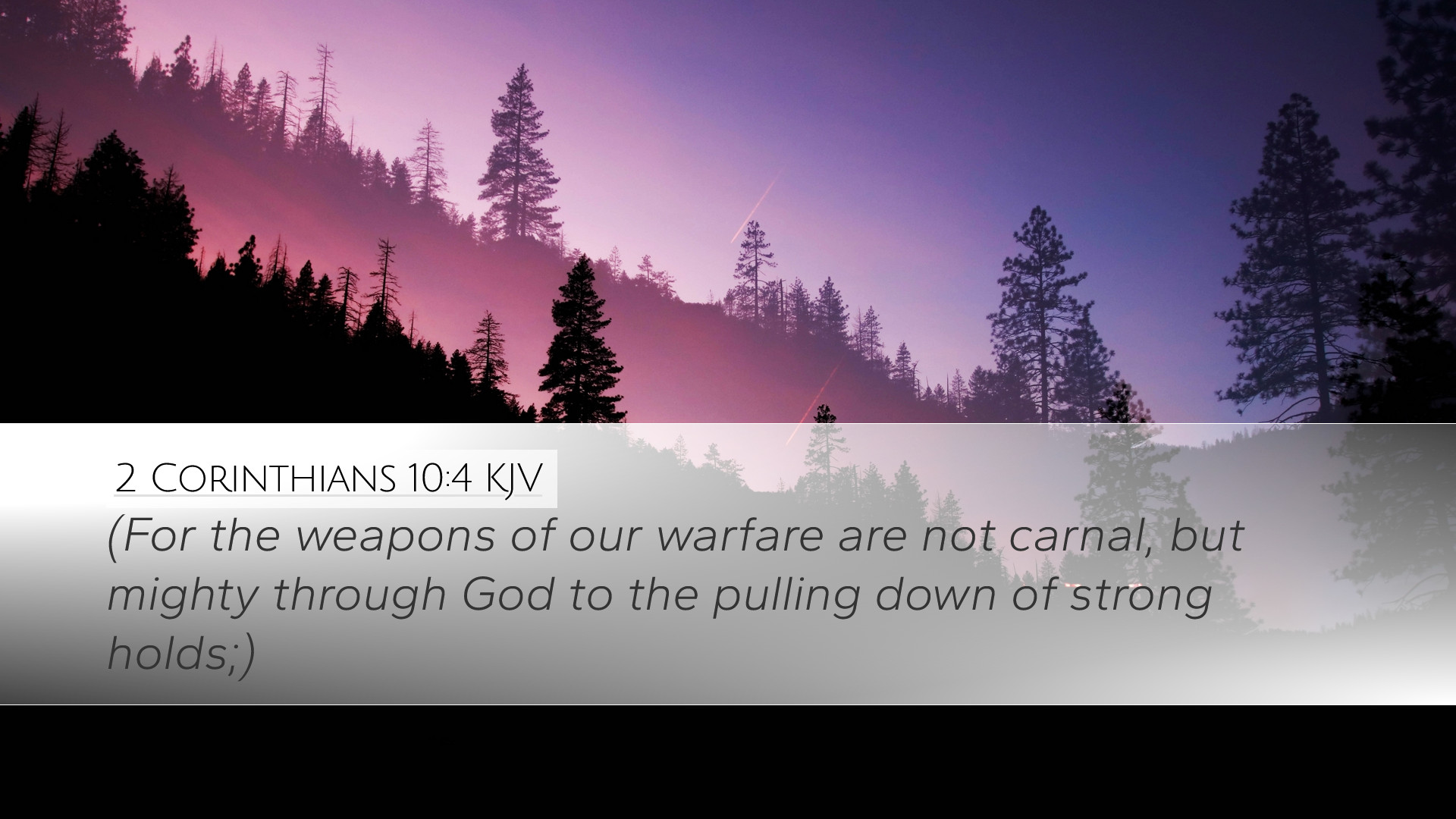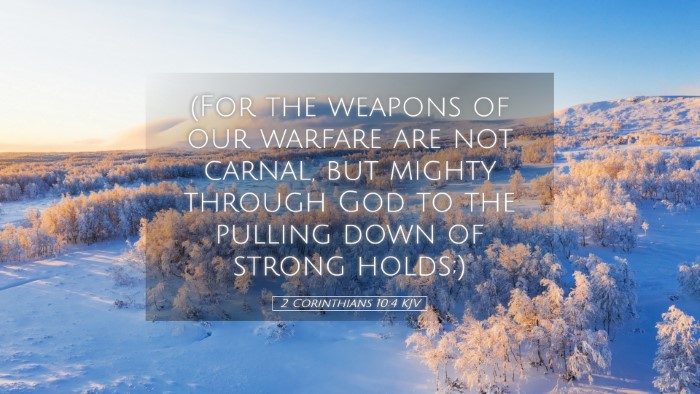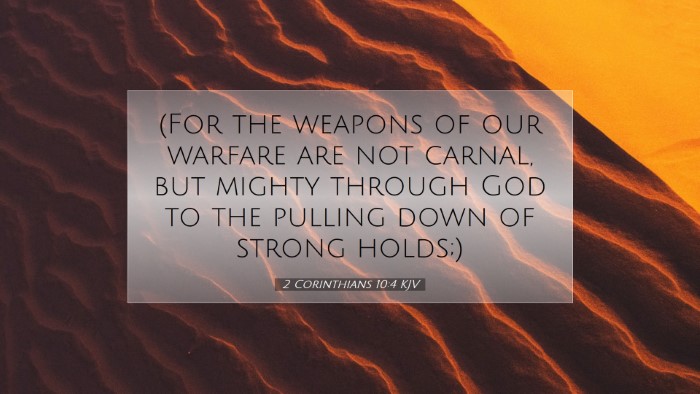Commentary on 2 Corinthians 10:4
Verse: “For the weapons of our warfare are not carnal, but mighty through God to the pulling down of strong holds.”
Introduction
This verse from 2 Corinthians 10:4 encapsulates a profound truth about the nature of spiritual warfare and the resources that believers have at their disposal. The Apostle Paul contrasts worldly weapons with divine tools, emphasizing the spiritual nature of the conflict faced by Christians. This commentary seeks to explore insights from several prominent public domain commentaries, providing a rich tapestry of understanding for pastors, students, theologians, and Bible scholars.
The Context of Spiritual Warfare
Matthew Henry notes that the Apostle Paul defends his ministry against various accusations from false apostles and challenges the integrity of his leadership. Paul insists that his methods and means of fighting for the truth differ fundamentally from those of his adversaries. The notion of "warfare" in this context highlights the seriousness of the spiritual battles that the church faces.
Understanding "Weapons of Our Warfare"
Albert Barnes emphasizes that the term "weapons" denotes the resources or means by which Christians engage in spiritual battles. He elaborates that these weapons are not physical or of earthly origin, contrasting sharply with the secular methods employed by adversaries. The phrase "not carnal" indicates that true effectiveness does not arise from human intellect, influence, or physical might but from divine empowerment.
The Nature of Spiritual Weapons
Adam Clarke expounds on the nature of these spiritual weapons, identifying them as prayer, faith, the Word of God, and the influence of the Holy Spirit. He asserts that the power of these weapons lies in their divine source and purpose: to dismantle strongholds of sin, falsehood, and objectionable ideologies opposing God’s truth.
Divine Empowerment
Continuing with Barnes' thoughts, the passage identifies that these weapons are "mighty through God." This phrase underscores that human effort is insufficient. Victory in spiritual warfare requires reliance on God's power rather than personal strength or stratagems. Reflecting on Ephesians 6, Paul reiterates the call to be strong in the Lord and the power of His might.
The Role of the Church in Warfare
Henry further includes the corporate nature of spiritual warfare, suggesting that it's not solely an individual battle but a collective endeavor. The church, armed with spiritual weapons, stands united against the prevailing strongholds within society and culture, which seek to undermine the Gospel.
Strongholds Defined
The term "strongholds" can refer to both internal struggles and external influences. Clarke mentions that these strongholds represent thoughts, arguments, and philosophies that exalt themselves against the knowledge of God. They symbolize obstacles that hinder the spread of the Gospel and the growth of believers.
Pulling Down Strongholds
As stated in the verse, the purpose of these mighty weapons is "to the pulling down of strong holds." This signifies not just an offensive strategy but an intentional dismantling of barriers that oppose God's sovereignty. True spiritual warfare involves actively engaging these fortifications with God’s truth, resulting in the liberation of those held captive by falsehood.
Conclusion: Engaging in Spiritual Warfare
The insights derived from the writings of Henry, Barnes, and Clarke collectively emphasize the call for Christians to engage in warfare using divinely provided tools. Believers are reminded that while they may face formidable strongholds in their spiritual journey, they possess unique and powerful weapons to combat such ideas and influences.
As pastors, students, and theologians reflect on 2 Corinthians 10:4, may they be equipped, encouraged, and emboldened to engage in the spiritual battles that confront the church today, always relying on the power and might of God for victory.


